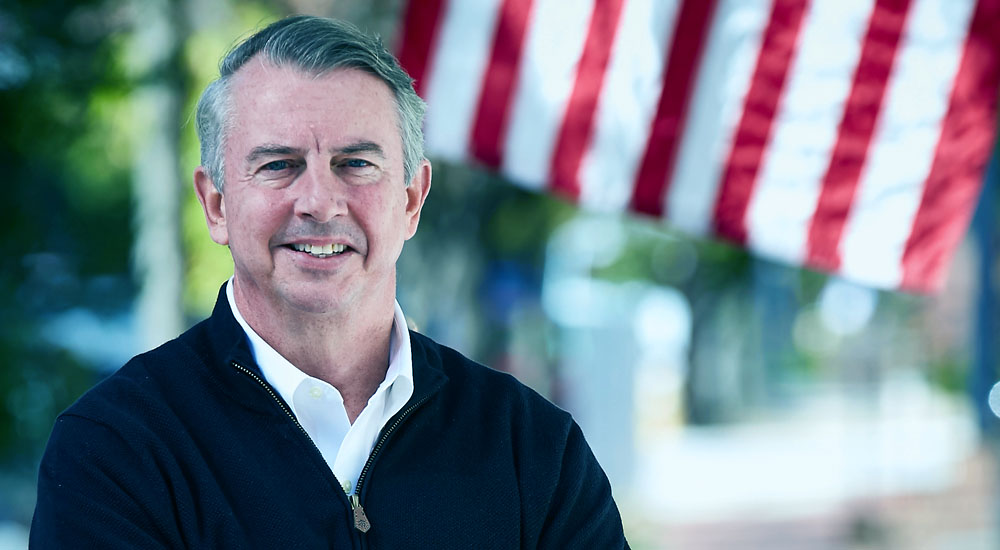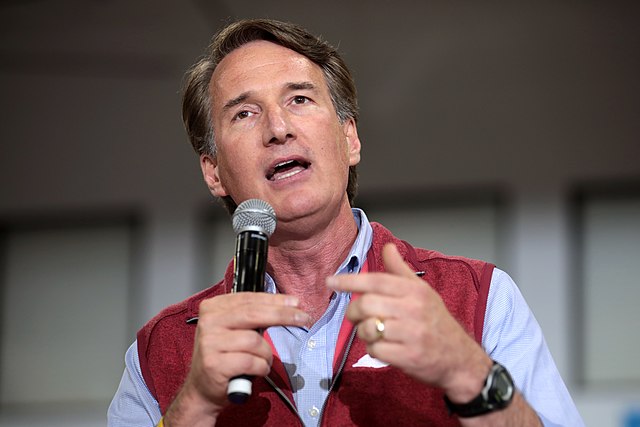First things first — Spanberger is as serious as a heart attack.
Consider for a moment that Trump is going to win the 2024 presidential bid. If one looks at battleground state polling — and Virginia has sadly relinquished its short-lived role as a battleground state — Trump is leading convincingly in 6 of the 7 contests and not by small numbers. So long as Biden’s unfavorable numbers hovers at 60%, and so long as the Congressional Generic Ballot remains north of positive for the Republicans (presently averaged at R+1.5), every advantage leans Trump’s way.
Of course, for Virginia that means we are setting ourselves up for a 2017 scenario where Democratic backlash among college educated women in particular not only flipped the Virginia House of Delegates but permanently realigned the Virginia political environment. As progressive Democrats began running in safe seats against their liberal predecessors, Republicans were being selected first and foremost for their ability to defeat fellow Republicans — before running and winning in putatively safe districts themselves.
Spanberger Has $3 Million Reasons (and Stoney Ain’t One)
The present environment presents Virginians with an odd cacophony of alliances, temporary and otherwise. Abigail Spanberger — whose rise to stardom included defeating Dave Brat in VA-07, calling out “the Squad” for running on defunding the police in front of US House Speaker Nancy Pelosi, and then successfully running as a Democrat in a redistricted VA-07 embracing not just the Fredericksburg area but Prince William County — is quickly emerging as the favorite liberal backed with largely progressive money.
Meanwhile, Richmond Mayor LeVar Stoney is the progressive running with liberal money — backed by former Governor Terry McAuliffe and the old Clintonistas. The pairing is odd; the contest set to begin the first Wednesday in November.
Cash on hand being the best indicator of strength, Spanberger’s federal account has a whopping $3 million cash on hand advantage against Stoney’s $758,068.
Naturally this is early. Virginia being one of the few states where there are no limits to campaign giving so long as it is recorded, McAuliffe and his handlers will have no problem narrowing any such gap. Yet Spanberger has the advantages of higher name ID, not to mention an army of small donors and a pattern of winning races in Richmond, Northern Virginia, and Fredericksburg.
Miyares Goes Big; Sears Invests in Small
Alternatively, Virginia Republicans are about to engage in the political version of watching your parents’ fight.
Attorney General Jason Miyares PAC is standing on a $1,645,179 pile of cash, raising $540,333 and spending $183,155 to do so.
Lieutenant Governor Winsome Sears alternatively has $621,524 in her PAC, raising $226,442 yet spending $207,045 — mostly to consultants.
Yet while Miyares is demonstrating strength, Sears is demonstrating reach — with many of her donors being small dollar ones both at home in Virginia and nationwide. Miyares alternatively has a sizeable donor pool as well, but the real strength of his PAC are large dollar donations from Richmond. The short version? Miyares is conserving his warchest for 2025, while Sears is steadily investing in mail and online donors in preparation for a contest.
It is widely assumed that Miyares and Sears will be running against one another for the 2025 run barring some heavyweight contender jumping in and elbowing both out for the Republican gubernatorial nod.
Given the stature of both, it would be nearly impossible to imagine who that person would be. Yet given the presumable outcome of the 2024 presidential contest, both Miyares and Sears will be running uphill — and both have rather unique approaches and advantages to tackling Virginia’s demographic shift.
At present, Spanberger seems to be the default for the 2025 gubernatorial election. Whether or not the progressive left will continue to allow the “radical centrist” line to permeate the debate is one factor. Another factor will be whether Miyares and Sears can open their respective circles to conservative ideas in the mode of Jack Kemp and Jim Gilmore. Four years of Bidenomics can really ruin a coalition.
Yet the dominant factor is and will continue to remain whoever is in the White House. Just as we saw with Youngkin’s numbers rising vs. Biden’s catastrophic drop after withdrawing from Afghanistan, the party in charge of the White House matters in Virginia. Spanberger may have the temporary advantage, but Republicans are in a position to define alternatives. If the race is against the status quo, Virginia Democrats will be hard pressed to explain to voters why they are not responsible for the present-day state of affairs — and repeating the line Orange Man Bad (TM), as McAuliffe discovered, isn’t a winning argument anymore.






